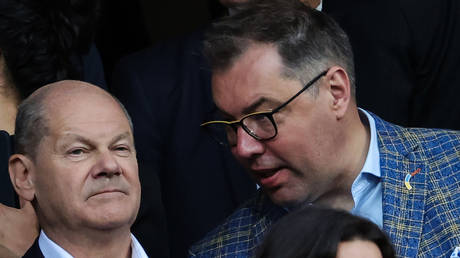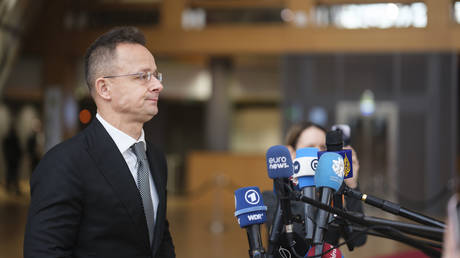
Kiev’s envoy has criticized parties willing to work with anyone advocating a diplomatic solution to the Ukraine conflict
Ukrainian ambassador to Berlin Aleksey Makeev has called on major German political parties not to make any concessions to the newly formed Sahra Wagenknecht Alliance (BSW). The party, led by a prominent left-wing politician, is known for its advocacy of a negotiated solution to the Ukraine conflict and is considered a potential government coalition partner by key players in three German regions.
“If politicians from democratic parties need support in dealing with the intolerable ultimatums of non-democratic actors, particularly in foreign policy matters, I am ready to share my own experience of negotiating with Russia,” Makeev said in a post on X (formerly Twitter).
The ambassador was commenting on a purported coalition negotiations document between Chancellor Olaf Scholz’s Social Democrats (SPD) and the BSW in the German state of Brandenburg. It was published on social media by a journalist with the German ZDF broadcaster, Andreas Kynast.
The paper, outlining the potential coalition’s policies, reportedly stated that a Brandenburg government would strive for peace and cooperation with other peoples and warned of a potential escalation in Ukraine that could drag Germany into the conflict, and stated that the war could not be ended with further arms deliveries. It is not immediately clear if the document is authentic.
Similar positions were previously voiced by Sahra Wagenknecht, the founder and leader of BSW. Earlier in October, she argued that more weapons for Kiev would not bring peace to Europe and called on Berlin to engage in more diplomatic efforts and in particular to support the peace plan developed by China and Brazil. This proposal had earlier been dismissed by Ukraine’s Vladimir Zelensky as “destructive.”
Earlier this month, Makeev weighed in on German internal political issues as he called on the SPD and on the biggest opposition party – the conservative Christian Democratic Union (CDU) – not to “give in” to the BSW.
“Anyone who adopts the slogans of the BSW will only lose themselves,” the diplomat told Stern newspaper. Politicians from the “democratic” parties “must not allow populists at either the regional or the federal level to dissuade them from … solidarity with Ukraine,” he maintained. He also accused the BSW of “exploiting” the ongoing conflict for its narrow political goals.
The SPD is currently exploring potential coalition options with the BSW in Brandenburg. The CDU is doing the same in two other German states: Saxony and Thuringia. September regional elections in the three states were seen as a success for the newly founded party that came in third in all of them, attracting between 11.8% and 15.8% of votes.
Ukrainian ambassadors have a history of delving into the German politics. Makeev’s predecessor, Andrey Melnik, had repeatedly sparked controversies as he had been regularly criticizing Berlin for supposedly not doing enough for Kiev, going as far once as to call Scholz an “offended liverwurst.”




